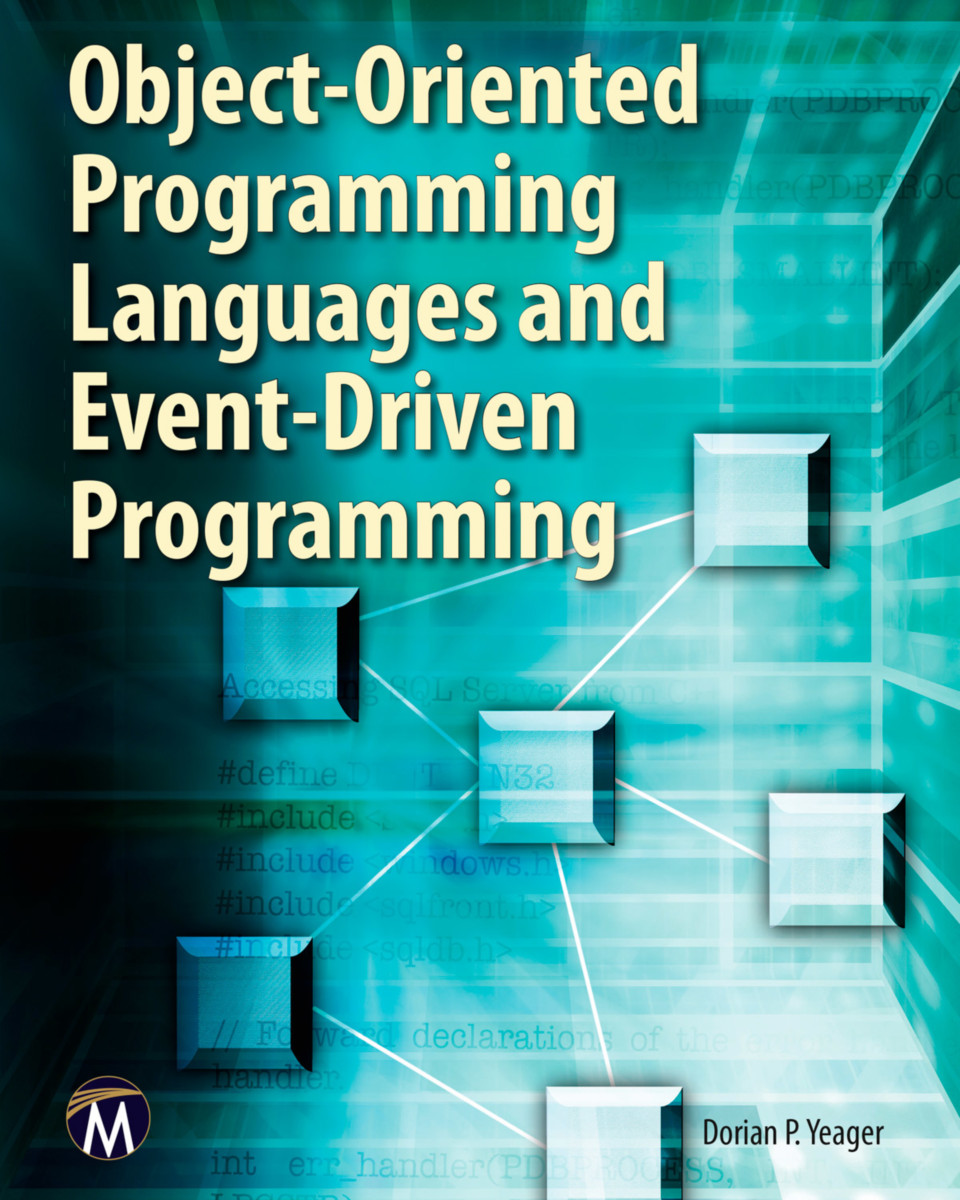Object-Oriented Programming Languages and Event-Driven Programming
- Publisher
Mercury Learning and Information - Published
24th January 2014 - ISBN 9781936420377
- Language English
- Pages 600 pp.
- Size 7" x 9"
- Request Exam Copy
Library E-Books
We are signed up with aggregators who resell networkable e-book editions of our titles to academic libraries. These editions, priced at par with simultaneous hardcover editions of our titles, are not available direct from Stylus.
These aggregators offer a variety of plans to libraries, such as simultaneous access by multiple library patrons, and access to portions of titles at a fraction of list price under what is commonly referred to as a "patron-driven demand" model.
- Publisher
Mercury Learning and Information - Published
15th December 2012 - ISBN 9781937585198
- Language English
- Pages 600 pp.
- Size 7" x 9"
E-books are now distributed via VitalSource
VitalSource offer a more seamless way to access the ebook, and add some great new features including text-to-voice. You own your ebook for life, it is simply hosted on the vendor website, working much like Kindle and Nook. Click here to see more detailed information on this process.
- Publisher
Mercury Learning and Information - Published
15th December 2012 - ISBN 9781937585204
- Language English
- Pages 600 pp.
- Size 7" x 9"
- Request E-Exam Copy
Essential concepts of programming language design and implementation are explained and illustrated in the context of the object-oriented programming language (OOPL) paradigm. Written with the upper-level undergraduate student in mind, the text begins with an introductory chapter that summarizes the essential features of an OOPL, then widens the discussion to categorize the other major paradigms, introduce the important issues, and define the essential terms. After a brief second chapter on event-driven programming (EDP), subsequent chapters are built around case studies in each of the languages Smalltalk, C++, Java, C#, and Python. Included in each case study is a discussion of the accompanying libraries, including the essential container classes. For each language, one important event-driven library is singled out and studied. Sufficient information is given so that students can complete an event-driven project in any of the given languages. After completing the course the student should have a solid set of skills in each language the instructor chooses to cover, a comprehensive overview of how these languages relate to each other, and an appreciation of the major issues in OOPL design.
Key Features:
•Provides essential coverage of Smalltalk origins, syntax, and semantics, a valuable asset for students wanting to understand the hybrid Objective C language
•Provides detailed case studies of Smalltalk, Java, C++, C#, and Python and features a side-by-side development of the Java and C++ languages--highlighting their similarities and differences
•Sets the discussion in a historical framework, tracing the roots of the OOPLs back to Simula 67.
•Provides broad-based coverage of all languages, imparting essential skills as well as an appreciation for each language’s design philosophy
•Includes chapter summary, review questions, chapter exercises, an appendix with event-driven projects, and instructor resources
1. A Context-Sensitive Introduction.
2. Event-Driven Programming.
3. Smalltalk and the Squeak Environment.
4. C++ and Java Commonalities and Similarities.
5. Additional Concepts from the C++ Language.
6. Visual Studio and the Microsoft Foundation Classes.
7. Java and the Swing Library.
8. C# and the Common Language Infrastructure.
9. Python and TKinter.
10. Appendix. Event-Driven Projects
Dorian P. Yeager
Dorian P. Yeager is Professor of Computer Science and Mathematics at Grove City College. He earned his Ph.D. in mathematics at the University of Tennessee and has taught various versions of the programming languages course since 1975. He has programmed on a consulting basis for NASA, universities, corporations, and was a full-time C++ developer for the U.S. Bureau of Mines.


